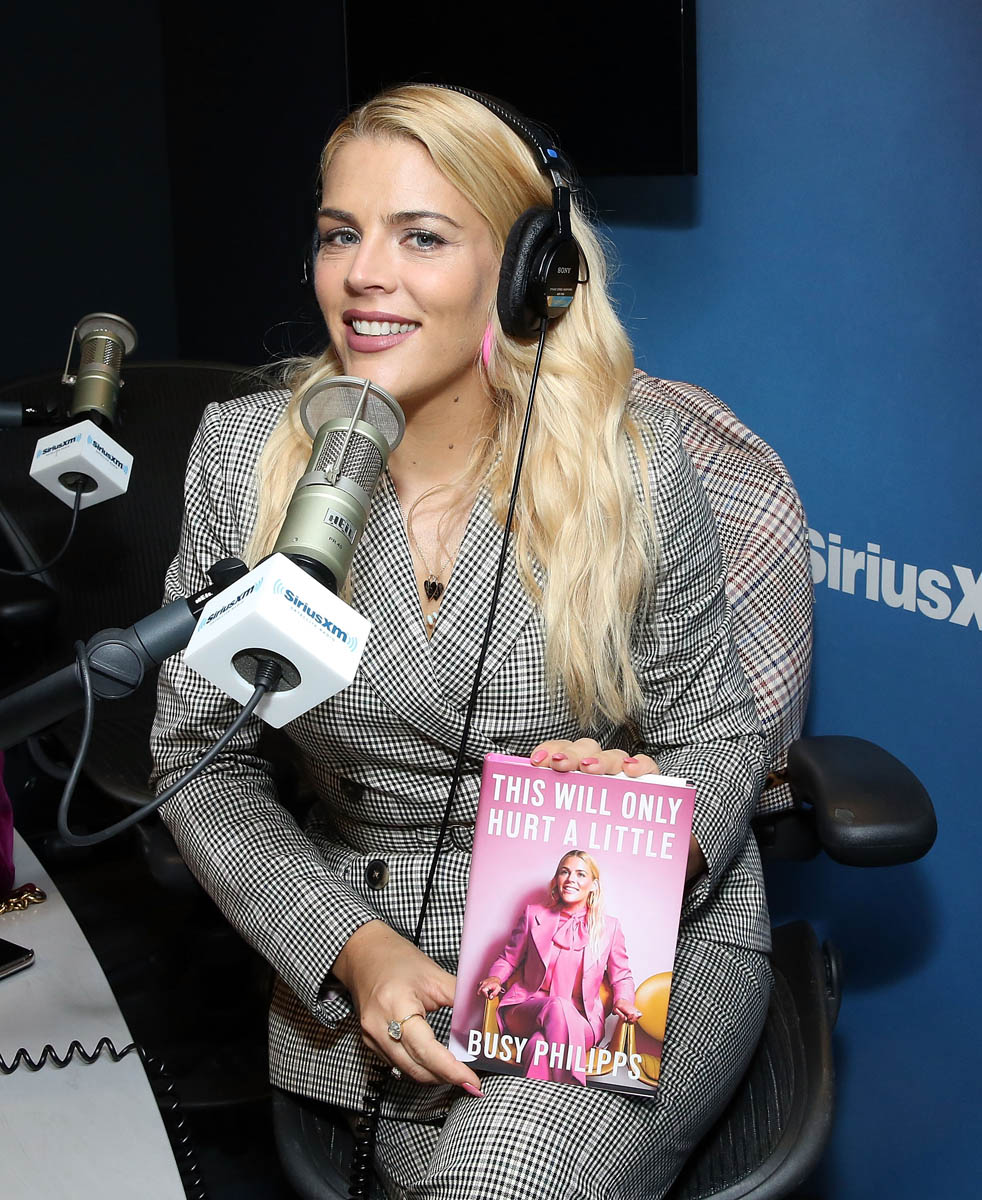Busy Philipps’s gossipy book



Busy Philipps’s book, This Will Only Hurt a Little, came out yesterday. I can’t wait to read it this weekend. And I was trying to avoid reading the excerpts but some of these are so good that it’s impossible to look away. This is a gossipy book because Busy is a gossipy person – a redundant statement since we all gossip and they, celebrities, gossip more than they admit to, but that’s also what we love about Busy: she’s never pretended to be above it and when given the opportunity, she will f-cking serve it. As noted in the previous post about Natalie Portman and how to “gossip well”, though, Busy’s gossiping aims to provide insight on her experience growing up in Hollywood, adjacent to mega-stardom, observing the effects of fame while not quite outside of it but not entirely in the eye of it either.
There are hilarious anecdotes about her time working on Dawson’s Creek, of course. Nothing is too salacious, nothing here draws blood. But that’s also what makes it so good. Busy’s intent is not malice. What Busy is doing here is giving context. She tells the story of who she was and who these people were. Us Weekly posted all the Dawson-related reveals in the book – like how Busy says was body-shamed and body-compared to Katie Holmes when she got to set, how that comparison would continue throughout her time on the show, and how by the time she joined the cast, some of them weren’t all that close (which is normal, to be expected, since by then they were on their fifth season and, just like in high school, sometimes your best friends in sixth grade aren’t your best friends in eleventh grade) but this one is my favourite:
According to Philipps, [Joshua] Jackson was very confident on set. “Josh really fancied himself ‘one of the guys’ with the crew. The Creek's very own mini George Clooney,” she wrote. “He's a good guy and just wanted to be well-liked but I wish I'd known the term 'mansplaining' when I met Josh. His ability to turn a conversation into a dissertation was incredible.”
Yep. I buy it. I buy that he was that guy. That guy at that age who was speechifying his way through life. Probably we’ve all been that guy. Who knows more than a 22-year-old who’s been reading some books?
The reason this is good gossip? Because this sh-t repeats itself. It has repeated itself. In Emile Hirsch and Jonah Hill. In Ezra Miller and Miles Teller and so many others.
Beyond Dawson’s Creek though, the excerpt that has stayed with me most so far from Busy’s book is about Blades of Glory. Per ET:
One of the most revelatory career-related anecdotes in Philipps’ book is the story of how she co-wrote Blades of Glory, the 2007 comedy that teamed up Will Ferrell and Jon Heder as male figure skaters hilariously paired together after being banned from individual competition. The news may surprise anyone who doesn’t spend their time scouring the film’s Wikipedia or IMDb page -- where she is listed with a “Story By” credit -- but Philipps’ side of the story is decidedly more complicated.
The actress recalls the moment she and then-boyfriend Craig Cox came up with the idea for the film -- while she was shooting White Chicks in Vancouver and watching endless amounts of ice skating on TV -- and recounts how she and Cox broke down the outline and drafted the script with his brother, Jeff, even writing in a love interest role for Philipps to play. Then, the brothers dropped her name from the script and sold it without her.
“I had a hard time recovering,” Philipps writes. “It wasn’t the script. It was that I’d been so easily thrown out, like trash. I was in the way of their success, I guess? Collateral damage. And in order for them to do this insanely sh**ty thing to me, they vilified me and told me I was crazy. The story became that I was the one who had tried to STEAL ideas from them, that I was ALWAYS just looking out for myself. THEY had come up with this AMAZING STORY, and I was the less-than-talented girlfriend trying to glom on to their talent and carve out a piece for myself. A piece that I didn’t deserve. I had a hard time figuring out what was real.”
You don’t have to be in Hollywood for that kind of bullsh-t to happen to you. You’ve been at a meeting where someone has taken credit for your idea. You’ve told someone something only to find out they claimed it for themselves. Research shows that women are less likely to take credit for their work preferring “we” over “I” statements in the workplace. Studies also show that when woman take credit for their work, they are called “selfish”; it’s not the same for men. Have you heard of “hepeating”? “Hepeating” is when a woman comes up with an idea and it’s dismissed but when a man says the same thing, it’s praised. All of that is happening here in Busy’s story. Her great idea was only great when it was presented by men. The men thought she was a selfish bitch for trying to take credit for the story. She then doubted herself when it all went down and it probably took a while before she was comfortable owning up to the “I” in her ideas instead of defaulting to the “We”.
The way to combat “hepeating” is amplification. Amplification is when “women's key points are listened to and repeated in meetings, giving credit to who came up with the idea. This forces others in the room - both men and women - to remember the contribution and who made it”. Busy talks about a woman who stepped up to amplify her in the end:
At the after-party for the Blades of Glory premiere, Philipps recalls getting a bit of absolution for the debacle from a no-nonsense Saturday Night Live alum. “Amy Poehler grabbed me. ‘Girl,’ she said. ‘Seth Meyers told me the story of what those dudes did. F**K ‘EM! You rock and are so talented. Come here! Sit at our table!!”
Lesson of the day? Gossip well and amplify.
For more excerpts from Busy’s book, check out Us Weekly’s post and ET.








